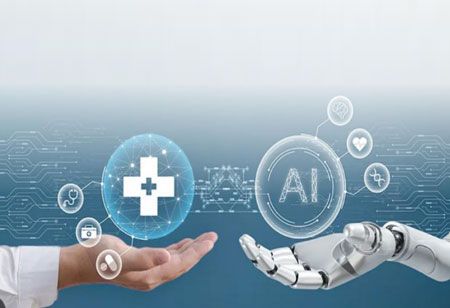By Global Consultants Review Team

In the rapidly evolving landscape of healthcare, the intersection of technology, data, and human insight has given rise to a new era of intelligent transformation. Hospitals, clinics, and healthcare networks are rethinking their operations to meet rising patient expectations, regulatory demands, and financial pressures. At the center of this change stands smart consulting, a strategic blend of healthcare expertise, digital innovation, and data intelligence that is redefining how care is delivered, managed, and optimized.
Over the past decade, healthcare has moved from a reactive to a pro-active model. Instead of treating illnesses after they occur, the focus is increasingly on predicting, preventing, and personalizing care. However, this transformation is complex and requires more than just technology, it demands insight, strategy, and execution. This is where healthcare consultants play a pivotal role.
Smart consulting leverages advanced analytics, artificial intelligence (AI), cloud-based solutions, and digital transformation strategies to enhance every facet of healthcare delivery. From operational efficiency and patient engagement to clinical outcomes and cost control, consultants help organizations align their strategic goals with emerging digital possibilities.
For instance, many healthcare providers struggle to integrate elec-tronic health records (EHR) systems effectively or interpret the massive volume of data they generate. Smart consultants analyze workflows, identify redundancies, and recommend scalable solutions that not only enhance interoperability but also improve decision-making. The goal is to enable care providers to operate more intelligently, making the system itself 'smarter'.
Data-Driven Decisions for Better Outcomes
Data has become the new currency of healthcare. Every patient visit, diagnosis, and treatment generates valuable information that can be used to improve outcomes, if managed properly. Yet, most healthcare systems still face challenges in turning data into actionable insights.
Smart consulting bridges this gap by applying data science and predictive analytics to healthcare operations. Consultants help organizations use data to forecast patient volumes, identify at risk populations, and optimize resource allocation. Predictive models can anticipate disease outbreaks, manage bed occupancy, or even predict equipment failures before they occur.
For example, a hospital equipped with predictive analytics can identify which patients are likely to be readmitted within 30 days and design targeted interventions to prevent it. Similarly, data-driven insights can guide procurement decisions, ensuring cost effective inventory management without compromising patient care.
By combining analytics with human expertise, consultants empower healthcare leaders to make more informed decisions, decisions that lead to measurable improvements in quality, safety, and patient satisfaction.
"From operational efficiency and patient engagement to clinical outcomes and cost control, consultants help organizations align their strategic goals with emerging digital possibilities"
Enhancing Patient Experience through Digital Transformation
Patient experience has emerged as a critical differentiator in healthcare. Today's patients expect seamless communication, personalized care plans, and digital access to their medical information. Smart consulting helps organizations design patient-centered ecosystems that enhance engagement and trust.
This includes implementing telemedicine platforms, mobile health apps, AI-powered chatbots, and digital front doors that simplify the patient journey. For example, a digital consultation system can reduce waiting times, while a mobile app can provide medication reminders, test results, or virtual followups. Consultants guide healthcare organizations through these technological adoptions, ensuring that digital tools align with both patient expectations and clinical objectives.
Moreover, smart consulting emphasizes data security and compliance with healthcare regulations like HIPAA and GDPR. Protecting patient data is as crucial as using it intelligently, and consultants ensure that innovation never compromises privacy or ethics.
The Human Element in Smart Consulting
While technology drives much of this change, the human touch re-mains central. Smart consulting isn't just about deploying digital tools, it's about empowering people. Consul-tants work closely with clinicians, administrators, and IT teams to fos-ter a culture of innovation and adaptability.
Through training programs, leadership development, and change management strategies, consultants help organizations build digital confidence. They ensure that healthcare professionals understand and embrace new systems rather than resist them. The most successful transformations occur when technology complements human intelligence, not replaces it.
Additionally, consultants bring an external perspective, helping organizations identify blind spots and benchmark against industry best practices. Their ability to combine empathy with expertise makes them essential partners in the ongoing evolution of healthcare.
Shaping the Future of Smarter Care
As the healthcare industry moves toward value-based care models and integrated health ecosystems, the demand for smart consulting will only grow. The next frontier will involve deeper AI integration, realtime analytics, and interoperability across entire healthcare networks.
Smart consultants will play a key role in shaping this future, bridging the gap between medical science, business strategy, and digital in-novation. Their ability to translate complex technologies into practical solutions will define how quickly and effectively healthcare systems evolve.
Ultimately, smart consulting for smarter care is about creating a healthcare environment that is proactive, connected, and patient-centered. It's about using intelligence, both artificial and human, to deliver better outcomes at lower costs. As technology advances and data becomes ever more powerful, consultants will continue to guide healthcare organizations in navigating the complexities of tomorrow, ensuring that care remains not only smarter but also more humane.
We use cookies to ensure you get the best experience on our website. Read more...